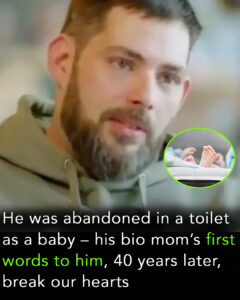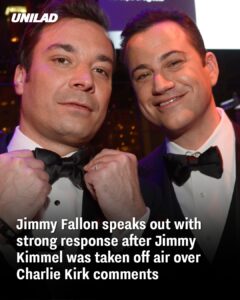Some days, life confronts us with truths we would rather not see. These are the moments that stop us cold, leaving us unsettled, raw, and searching for words that will never feel adequate. My day today was one of those. The lesson I learned wasn’t in a book or a classroom; it was in a parking lot, and it was about the profound, devastating impact of human treatment.
It began with the most routine of errands. I went to the post office, my mind on a dozen other things, expecting nothing more than to stand in line and mail a few items. But in the parking lot, I saw her. Her presence made me stop.
She was standing awkwardly near the entrance, her posture a painful mix of hesitation and desperation. Her clothing, or what was left of it, was more in tatters than whole. Thin strands of fabric hung from her, barely covering her body. The sight was jarring—not out of judgment, but because of the sheer vulnerability. She was exposed to the world in a way no one should ever have to be, her dignity as uncovered as her skin.
When I walked past, she lifted her eyes. They were tired, but they were searching. She asked in a quiet, almost trembling voice if I could give her some money.
I instinctively checked my wallet, a familiar, almost automatic gesture. I had no cash. For a split second, I considered the easy out—a quick “I’m so sorry, I don’t have anything,” and then move on. It’s the socially acceptable escape we all use.
But something in her eyes stopped me. They weren’t just asking for money. They were pleading for acknowledgment, for a simple reminder that she was still visible to the world.
So, I tried a different approach. “Would you like me to get you a new shirt from the dollar store next door?”
Her reply pierced me deeper than any story I’ve ever heard. It’s a sentence I will carry with me for the rest of my life.
She looked away, her voice low but clear enough for me to hear.
“What’s the point of trying to look beautiful when I’m so ugly?”
Her words landed with a physical weight in the pit of my stomach. They weren’t spoken with anger or bitterness. They were spoken with the hollow, defeated tone of someone who had been told this lie by the world so many times that she now believed it as a fundamental truth. To her, “beauty” was a standard she could no longer reach, a battle she had already lost, and a cruel joke.
I felt tears well up in my eyes, my throat tightening. How do you respond to a question like that? How do you undo a lifetime of cruel treatment in a 30-second exchange?
With as much gentleness as I could gather, I said, “Well, beauty, like people, is not just one thing.”
Because that is the truth, isn’t it? Beauty is not a narrow, exclusive box. It is not flawless skin, expensive clothes, or a polished, perfect appearance. Beauty is kindness. Beauty is survival. Beauty is the raw courage it took for her to stand in that parking lot, exposed and in pain, and still ask for help.
I went into the store. I bought her what I could—a new shirt, some water, antibiotic ointment, and bandages. It was a small, tangible way to donate something to ease the physical roughness of her day. But that’s not what lingers with me.
What stays with me, hours later, is her question.
The Reflection in the Parking Lot
“What’s the point of trying to look beautiful when I’m so ugly?”
Those words carry a weight that no gift can erase. They echo a deeper, more heartbreaking truth about our world. This woman’s feeling of “ugliness” isn’t about vanity. It is a symptom of a spirit that has been broken. It is the end result of a society that has looked through her, past her, or at her with disgust. Her belief is a reflection of our failure.
We have shown her, as a society, that her worth is tied to her appearance, and then we have allowed her to fall into a state where her appearance is tattered. She has internalized the cruelest message the world can give: that because her life is in ruins, she herself is ruined, worthless, and beyond repair.
This is the psychological barrier that is more powerful than any locked door. How can a person begin the long, painful road to recovery when they believe they are not worth recovering? How can someone enter a rehab program, seek help, or fight for a better life if they are convinced, in their very core, that they are “ugly” and there is “no point”?
This belief is the most devastating injury of all. It is the invisible wound that festers long after the physical ones.
I share this story not for praise. I don’t want a pat on the back for buying water and a t-shirt. Those were small, insignificant acts—the bare minimum of human decency.
I share this because I want us to stop and remember that nobody should ever feel as though they are beyond beauty.
This woman has absorbed the lie that she is ugly, that there is no point in trying. And I am left to wonder, how many others feel that way? How many people walk past us every single day, carrying invisible signs that read: I don’t matter. I’m not beautiful. I’ve been forgotten.
We live in a world that celebrates the surface over the substance. We scroll past endless feeds of filtered smiles, perfect bodies, and polished lives, and we forget that real, human beauty often looks nothing like that.
Real beauty looks like scars that tell a story of survival. Real beauty looks like eyes that have cried but still hold a flicker of hope. Real beauty looks like the profound strength it takes to ask for help when your pride is all you have left. And real, breathtaking beauty looks like kindness—the kind we offer to others, and the kind we must learn to offer ourselves.
When I looked at that woman today, I didn’t see ugliness. I saw pain, yes. I saw hardship etched into every line of her face and every tear in her clothes. But I also saw a human being who was still standing, still asking, still fighting to be seen. That, to me, is beautiful.
I hope, in that small moment, she felt it too. I hope my words, or the simple, tangible gift of a clean shirt, reminded her—even for a second—that she is more than her circumstances. She is more than her reflection, and she is more than the cruel lies she has been told.
And I hope this serves as a reminder to you, too. No matter what you are facing, no matter how battered or broken you feel, no matter how loudly the world tries to tell you otherwise—there is still beauty inside you. Despite your struggles, your differences, or your pain, that beauty has not left.
Maybe today, you need to hear this as much as she did: You are not ugly. You are not forgotten. You are not less.
You are seen. You matter. Because beauty, like people, is not just one thing.



